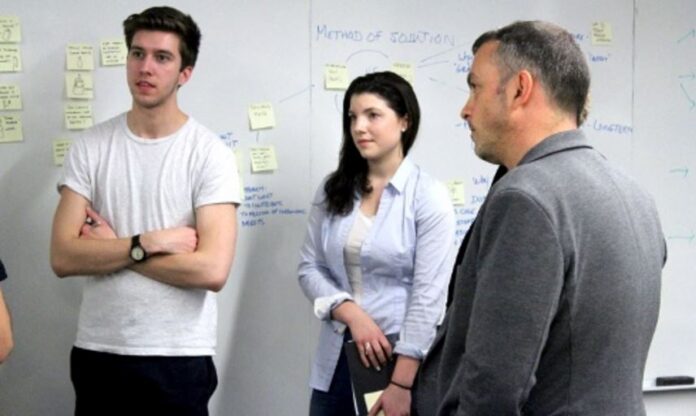
From funding prototypes to reducing risk, entrepreneurs face common roadblocks when taking an idea or business from invention to market. With a near $500,000 grant from the U.S. Department of Commerce – one of 25 grants created to advance capacity-building and entrepreneurial efforts – Virginia Tech’s Catalyst Program will accelerate its efforts to support technology, innovation, and job creation for entrepreneurs in the Roanoke-Blacksburg region.
Access to early stage funds is not the main problem in the region, says John Provo, director of Virginia Tech’s Office of Economic Development and the principal investigator of the grant. But resources are needed to cover three things:
- Seek promising technologies
- Minimize risks
- Put entrepreneurs on a path to market
“The Virginia Tech Catalyst Program fosters collaboration between innovators and entrepreneurs,” Provo says. “Together, they will address challenges in moving research to the private market while securing necessary investments with an eye towards job creation.”
The initiative trains and challenges student, faculty, and industry participants to think broadly about commercial and societal applications of research, organizers say. Together, they take ideas through phases from concept and design, to prototyping and analysis, and eventually investor-readiness.
The Catalyst Program began in 2015 and with 45 students, faculty members, and industry participants who met monthly to brainstorm and share updates. With the grant from the U.S. Department of Commerce, the program is expected to grow to 75 students, faculty members, and industry fellows.
The Office of Economic Development is part of Outreach and International Affairs at Virginia Tech.
Collaborators in the initiative include Ben Knapp, the director of the Institute for Creativity, Arts, and Technology; Elizabeth Tranter, associate vice president for research planning in the Office of the Vice President for Research and Innovation; Derick Maggard, executive director of the Apex Systems Center for Innovation and Entrepreneurship; and Tom Martin, a professor in the Bradley Department of Electrical and Computer Engineering and associate director of the Institute for Creativity, Arts, and Technology.
As a major economic hub for the entire region, Virginia Tech is well positioned to continue to support startup growth, help students advance their innovative and entrepreneurial ideas into reality, and boost the economy in Roanoke and Blacksburg, according to a statement by U.S. Senator Mark Warner.
“I’m pleased that Virginia Tech has been selected for this funding to support faculty and student entrepreneurs, encourage innovation and help create good-paying, 21st century jobs,” Warner said in a news release.
In addition to providing resources for startups emerging from the university, the grant to the catalyst program will help students and faculty evaluate the commercial viability of research and perform early stage design ideation for industry partners.
Undergraduates who work on next-generation concepts will be involved in the effort, along with faculty members and industry affiliates who provide technical support and identify business opportunities.
Partners include the Roanoke-Blacksburg Technology Council, Center for Innovative Technology, Virginia Economic Development Partnership, New River Valley Regional Commission, Roanoke Valley-Alleghany Regional Commission, and New River Valley Economic Development Alliance. Other board members represent the New River/Mount Rogers Workforce Investment Board, Virginia Tech Intellectual Properties, VT KnowledgeWorks, Rackspace, and Cambrian Design.
The U.S. Department of Commerce allocates the funding as part of the Economic Development Administration’s 2015 Regional Innovation Strategies program. Managed by the Office of Innovation and Entrepreneurship, the program is designed to advance innovation and capacity-building activities in regions across the country.
Keith Pierce and Susan Bland contributed to this report.

